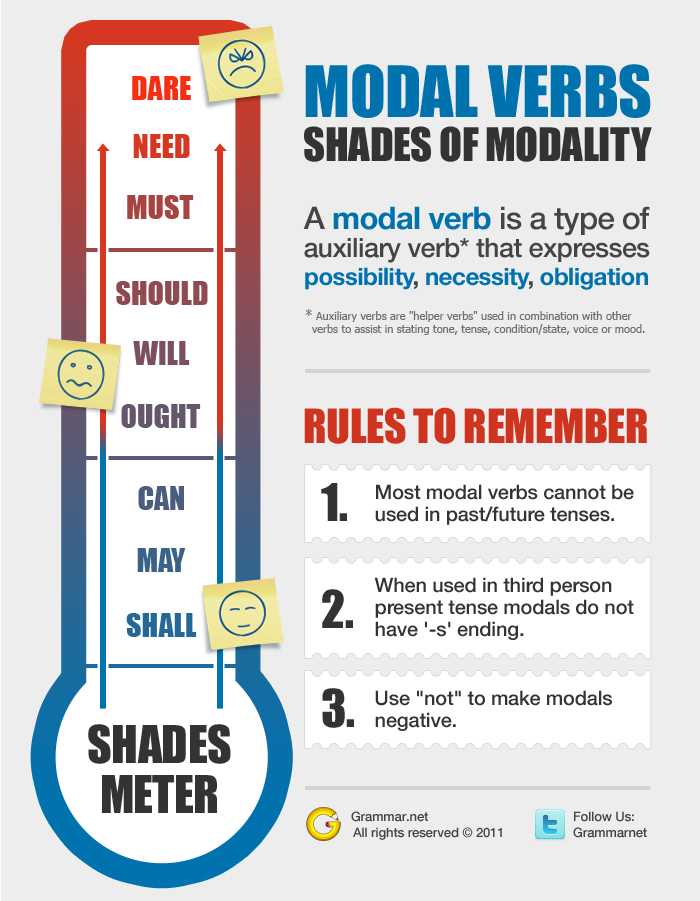A modal verb is a type of auxiliary verb that expresses possibility, necessity or obligation. Because of their commanding tone, modals must be used carefully, and some writers attempt to avoid them entirely.
 [Infographic provided by Grammar.net]
[Infographic provided by Grammar.net]
Dare
The most feisty of modal verbs, when “dare” is used as a modal, it has a very specific and negative purpose.“Don’t you dare!” or “How dare you tell her about that?”
Need
“Need” is a black or white word, so use it sparingly.“You need this.”
Possible alternative: “Would you like this?”
Must
“You must come with us.”Possible alternative: “We’d love to have your company.”
Should
“You should eat more vegetables.”Possible alternative: “Vegetables are nutritious, and some of them even taste good.”
Will
“You will like this.”Possible alternative: “I hope you like this.”
Ought
“Polly ought to try a new hair style.”Possible alternative: “I wonder if Polly likes any of the new hair styles.”
Can
This verb sounds like the writer/speaker is granting permission–little better than the commanding tone.“You can come with.”
Possible alternative: “We would like for you to come with.”
May
Like “can”, this verb also tends to sound like a parent voice granting permission.“Yes you may.”
Possible alternative: “Please do.”
Shall
“You shall not pass!”Possible alternative: “Please consider an alternate route!”
The last example is from a popular novel/movie and illustrates the power of modals. Can you think of other catch phrases containing modal verbs? If you remove the modal, does that catch phrase lose its energy?
 |
| photo by grammar.net | high resolution download |


